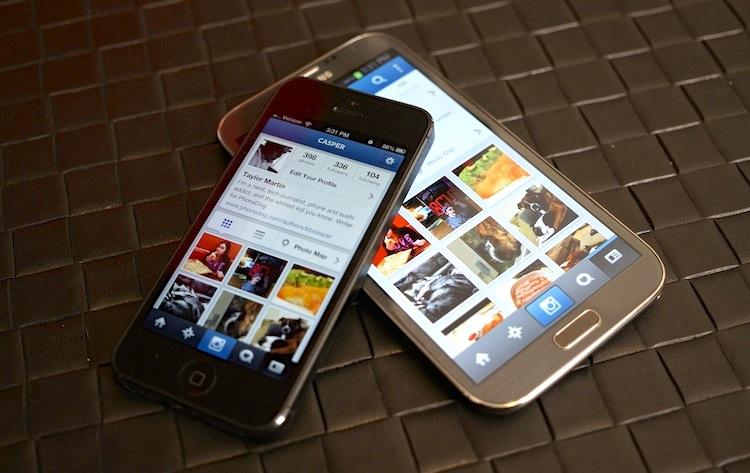
In just two years, Instagram has exploded in terms of users, adoption and notoriety. As of May, the network had over 50 million users and over one billion photos had been uploaded. And the growth of those two numbers are astounding. Every second, there are 58 new photos uploaded and at least one new user.
I have been using Instagram for nearly two years now. I have uploaded 398 photos and have 336 followers. I have received over 1,700 total likes and just shy of 400 comments. And I'm just moments away from deleting my account. Forever.
Why?
Yesterday, the social network updated its terms of service and the Web went nuts. As a matter of fact, it is still going nuts. Hundreds of stories detailing the new, seemingly controversial terms have surfaced and Instagram users across the Web are up in arms.
But what are the controversial changes to the terms and conditions? The most contentious changes are under the first two entries in the Rights section. They read as follows:
"1. Instagram does not claim ownership of any Content that you post on or through the Service. Instead, you hereby grant to Instagram a non-exclusive, fully paid and royalty-free, transferable, sub-licensable, worldwide license to use the Content that you post on or through the Service, except that you can control who can view certain of your Content and activities on the Service as described in the Service's Privacy Policy, available here:http://instagram.com/legal/privacy/.
2. Some or all of the Service may be supported by advertising revenue. To help us deliver interesting paid or sponsored content or promotions, you agree that a business or other entity may pay us to display your username, likeness, photos (along with any associated metadata), and/or actions you take, in connection with paid or sponsored content or promotions, without any compensation to you. If you are under the age of eighteen (18), or under any other applicable age of majority, you represent that at least one of your parents or legal guardians has also agreed to this provision (and the use of your name, likeness, username, and/or photos (along with any associated metadata)) on your behalf."
For one, Instagram now reserves the right to share information seamlessly between Facebook to learn more about users and to deliver more targeted ads at said users. And, in essence, Instagram now reserves the right to sell your photos and account information for advertising revenue, meaning your face, Instagram username and other account information are free game for advertisements.
Say you visited a venue or a hotel. Pictures taken while you were at that specific location would be prime advertising material for those businesses and venues. They could purchase a license to your photos from Instagram – without your knowledge – for use in ads.
However, nothing about these new terms truly bother me.
It's no secret Facebook wanted to monetize Instagram. Otherwise, I doubt it would have bought the startup for a cool one billion dollars. Facebook makes its money through advertising and it should come as no surprise that Instagram would take a similar route. Anyone surprised by the change clearly doesn't understand how the free Internet works or how social media makes its buck.
I'm not exactly thrilled about the changes. I take some pictures that I would rather not be shared without my knowledge or sold without some incentive or compensation to me, the creator of those images. But the changes are not enough to drive me away from the social network altogether. I would simply not share those particular photos to Instagram.
I made the decision to leave Instagram a few days ago – the 15th, to be exact – when I posted a picture from a bar I was at with some friends. What drove me away is the network itself, the atmosphere and the core reason it exists. For anyone unaware, that core purpose is to share photos with friends, and potentially strangers with common interests via tags.
For me, though, Instagram has only served a single purpose: to share pictures with my existing friends on Twitter and Facebook. The problem is, Instagram itself is a poor vehicle for sharing photos if you care about interaction or picture quality.
I'm a stickler for high-quality images, yet at least 90 percent of everything I have ever viewed on Instagram is terrible. There were a few photographers I follow that regularly post quality content. But the images are scaled down and cropped to a maximum size of 612 by 612 pixels. Throw a filter on top of that and possibly faux tilt-shift and a frame, and you have an over-processed piece of garbage.
I almost entirely quit using filters in March in favor of a much better post-processing app called Snapseed. And, for me, it was then that Instagram lost what little value it had. Other than a few likes, my photos on Instagram get little engagement. A few comments and maybe 20 likes, at best. But I also share those pictures to other networks, like Twitter and Facebook, where the very same pictures get all sorts of comments, likes and tons of interaction from friends and followers.
Instagram was sort of fun while it lasted. But this morning, I created a new recipe on IFTTT.com, where any picture I upload to Facebook is immediately posted to Twitter, which will work quite well since I always share everything to Twitter and only select photos to Facebook. Once I download a backup of all my Instagram pictures, I'm going to disable my Instagram account and never look back.
I will do all my photo sharing via Twitter and Facebook, where full-res pictures are more than welcome. And, who knows, maybe I'll get around to giving Google+ some more attention now. But I'm done with cropped, scaled-down, terribly filtered photos.